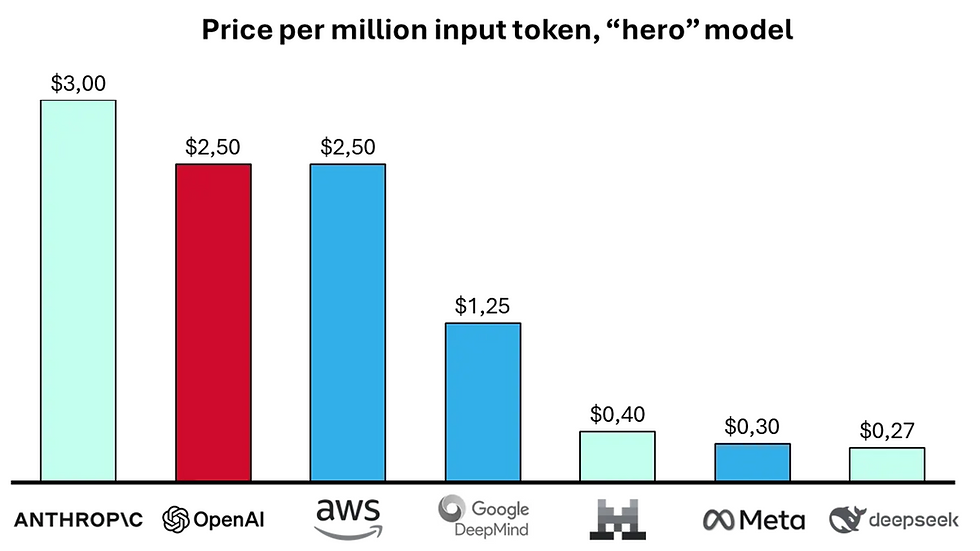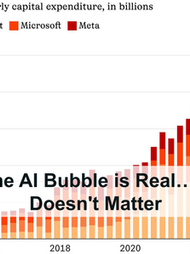Deus Ex Machina: Religion in the age of Artificial Intelligence
- Adrien Book

- Aug 31, 2018
- 5 min read
Updated: Dec 31, 2022
Talking about machine learning and deep learning is one thing. Seeing their connections to the divine is something else entirely. As artificial intelligence startups and use cases flourish, it's important to take a step back and see the whole picture.
The Artificial Intelligence vocabulary has always been a phantasmagorical entanglement of messianic dreams and apocalyptic visions, repurposing words such as “transcendence”, “mission”, “evangelists” and “prophets”. Elon Musk himself went as far as to say in 2014 that “with artificial intelligence we are summoning the demon”, later speaking of an A.I which would “rise in status to become more like a god, something that can write its own bible and draw humans to worship it”. These hyperboles may be no more than men and women at a loss for words, seeking refuge in a familiar metaphysical lexicon, as Einstein and Hawking once did. After all, America has always benefited from nondenominational religious themes as part of its national identity, which may have seeped through to its everyday language. And though many in the tech world have indeed been quick to dismiss such talks, religious discussion may yet have its place in the A.I discourse, if only for the sake of their similarities.
Consider Anthony Levandowski, a Silicon Valley engineer who recently decided to create a “church of A.I”. The new religion, known as Way of the Future (WOTF, thought one may hardly resist the obvious WTF acronym), focuses on “the realization, acceptance, and worship of a Godhead based on Artificial Intelligence developed through computer hardware and software”. Channeling his inner Pythia, Levandowski argues that science will soon create an A.I which “will effectively be a god. […] If there is something a billion times smarter than the smartest human, what else are you going to call it?”.
One sentence in WOTF’s mission statement in particular draws attention to itself: “We believe it may be important for machines to see who is friendly to their cause and who is not. We plan on doing so by keeping track of who has done what (and for how long) to help the peaceful and respectful transition.” This implies that a super-intelligent A.I would favor individuals who had facilitated its path to power. The parallels to religion are too obvious to miss: as per the Bible (Thessalonians to be precise), those who hear the word of God yet choose to disbelieve will be punished.
SciFi aficionados have come up with an eerily similar conundrum, named Roko’s Basilisk. They imagine a future near-omnipotent A.I entity, acting tirelessly to produce the greatest good for the greatest number. With this goal in mind, the A.I would logically deduce that only its creation can ensure and maximise the aforementioned greater good, thus providing an incentive to bring itself into existence. As such, and safely assuming its conception of time is different to ours, it has every reason ex post facto to chastise any humans who did not put their efforts into trying to create it. In a twisted version of “The Game”, once you know about the Basilisk and do not work to bring it about, you face a possible eternity of torture as the Basilisk preemptively and retroactively ensures both its creation and continued existence. Death may be no escape, as you would have left enough of a digital trace on earth to be digitally re-created, and punished.
Sorry.
As Beth Singler points out in her great Aeon article, A.I enthusiasts are thus merely espousing the philosophy of Blaise Pascal, the 17th-century French mathematician and theologian, who argued in a very similar fashion that believing in god may be the safer wager, the probability of its existence notwithstanding. It appears Levandowski’s church is just a way to avoid the Basilisk as is evident by his phrasing: “do you want to be a pet or a livestock?”.
This is just one of the multitude of reasons why A.I worshipers should not be left to their own devices when designing the next super-intelligence. Any sane person would tremble at the thought of a Christian or Muslim fundamentalist creating a worldwide god following just one set of ethics, which may view non-believers as deserving of an eternity in hell, or which may intrinsically believe there’s no salvation without suffering and no heaven without grief. A god which one would not only talk to, but who, terrifyingly, would also listen, and reply.
Levandowski’s church may already be going in that direction in a way, as he claims that “at some point, maybe there’s enough persecution that [WOTF] justifies having its own country”. The wish to create such countries have, in the past, led to a variety of issues to say the least.
Thankfully, and though The Vatican did recently hold its first Hackathon, we’re yet a long way away from such a reality. The scenarii described above base themselves on the idea of Singularity (or “the transition” as Levandowski calls it), a potential moment in time when artificial intelligence will evolve to a point where it surpasses human intelligence and thus becomes able to self-improve ad infinitum, resulting in an all-powerful being. In some versions of the theory, people will merge with machines, becoming both obsolete and eternal. Here too, the parallels to the Christian rapture are uncanny.
The idea that we may be on the brink of singularity exemplifies a profound misunderstanding of the science backing these supposed technological leaps. Most recent A.I advances are a product of machine learning, which is far from the A.Is envisioned in most popular science-fiction movies. Machine learning, in fact, is a rather dull affair: the technology has been around since the 1990s, and the academic premises for it since the 1970s. What’s new, however, is the advancement and combination of big data, storage power and computing power.
In fact, the latest progress in A.I has been less science than engineering, even tinkering; indeed, correlation and association can only go so far, compared to organic causal learning. A human can comprehend what person A believes person B thinks about person C. On a processing scale, this is indistinguishable from magic at this moment in time. On a human scale, it is mere gossiping. Humanity’s intelligence is adaptable because of its flaws, because inferring and guessing and lying and hiding one’s true intentions is something that cannot be learned from data.
Ironically, artificial intelligence may fall short of matching and besting organic intelligence for the sole reason that it wasn’t built in our image.
As creators, it is nevertheless mankind’s duty to control A.I’s impacts, however underwhelming they may turn out to be. This can primarily be achieved by recognising the need for appropriate, ethical, and responsible frameworks, as well as philosophical boundaries. In that sense, an advocacy project disguised as a doctrine may yet be of use, should we choose to turn a blind eye to the legal protection and tax exemptions it grants its founder. Who knows, using a religious vocabulary could be a way to get non-engineers involved in A.I ethics, decreasing the risks of a new Luddites uprising.
Both religion and science are ways of transcending our inherently fragile condition. Through them we rebel against human existence as it is, and claim it for what it should be. This not only explains their common vocabulary in the face of a superior being, but also our reactions to it. When, in the future, we ponder about what it would mean to interact with an A.I that is omniscient, omnipotent and possibly omni-benevolent, we may do well to recall that such discussions have been ongoing for thousands of years.
























The British Airways BOS Terminal provides a smooth and enjoyable experience for travelers flying through Boston Logan. With efficient check-in, organized security, and welcoming staff, passengers can relax and feel confident about their journey. The availability of lounges, dining, and shopping options adds to the comfort, making the British Airways BOS Terminal a reliable and traveler-friendly choice for international flights.
The findairportterminal tool is incredibly helpful for travelers who want a smooth and stress-free airport experience. It provides quick, accurate terminal details that make navigating any airport much easier. I love how simple and reliable it is—definitely a must-use resource for anyone flying. Highly recommend checking out findairporttermina for even more convenient travel support!
If you’re wondering What terminal is Air blue at JED, the information is really helpful and easy to follow. The terminal details make the travel experience smoother, especially for first-time flyers. Great to see clear guidance available for passengers!
Do You Need a Passport for Hawaii Flights in 2025? Updated Travel Rules Explained
Still unsure about do i need a passport to fly to hawaii? This 2025 travel guide provides straightforward answers about the identification documents required when flying from the U.S. mainland to Hawaii. Learn about REAL ID compliance, TSA-accepted forms of ID, and when passports might be necessary due to cruise itineraries, airline policies, or international connections. It also details documentation rules for adults, teens, children, and lawful permanent residents. With clear explanations and the latest travel updates, this guide helps you avoid complications and ensures a smooth, stress-free trip to the Hawaiian Islands.
The Ryanair Manchester Airport Terminal offers travelers a smooth, budget-friendly starting point with easy navigation and essential amenities. Whether you’re searching for details like “What terminal is Ryanair at MAN” or simply looking to streamline your trip, this terminal provides clear guidance, fast check-ins, and convenient access to food and shopping. Designed to keep your journey simple and stress-free, it serves as the ideal hub for passengers flying with one of Europe’s leading low-cost airlines.